
Facebook users fooled by AI images of 'world's longest-necked family'
- This article is more than one year old.
- Published on November 20, 2024 at 07:44
- Updated on November 21, 2024 at 02:40
- 4 min read
- By Pasika KHERNAMNUOY, AFP Thailand
"Amazing discovery in the Amazon rainforest!" read a Thai-language Facebook post published on November 7, 2024.
"Skeleton of a giant with the longest neck in the world found -- a revelation that rewrites history."
Three sepia images in the post -- which garnered more than 120,000 likes and 5,500 shares -- appear to show people with long necks and a human skeleton with dozens of neck bones.
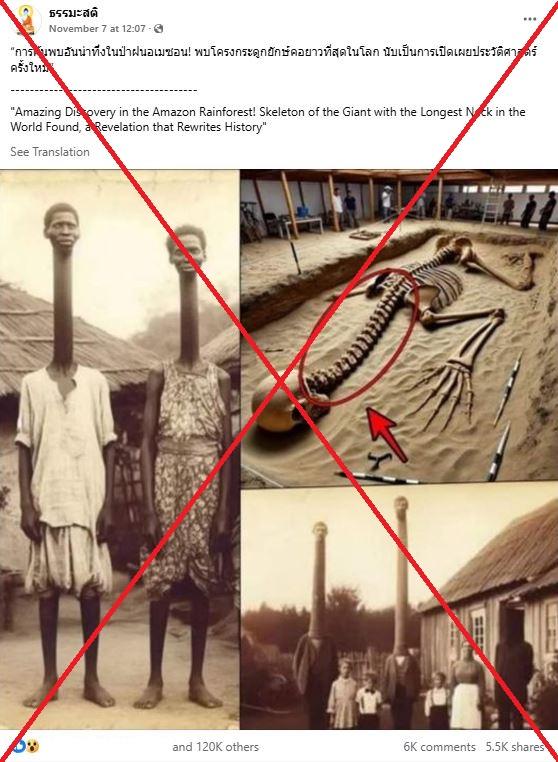
The photos ricocheted across Facebook in various languages, including Arabic, English, Hindi, Japanese, Swahili and Thai. They also spread on TikTok, Threads and X.
Some posts claimed the pictures were taken in 1860 and showed another image of two women wearing layers of rings around their necks next to a man in military uniform.
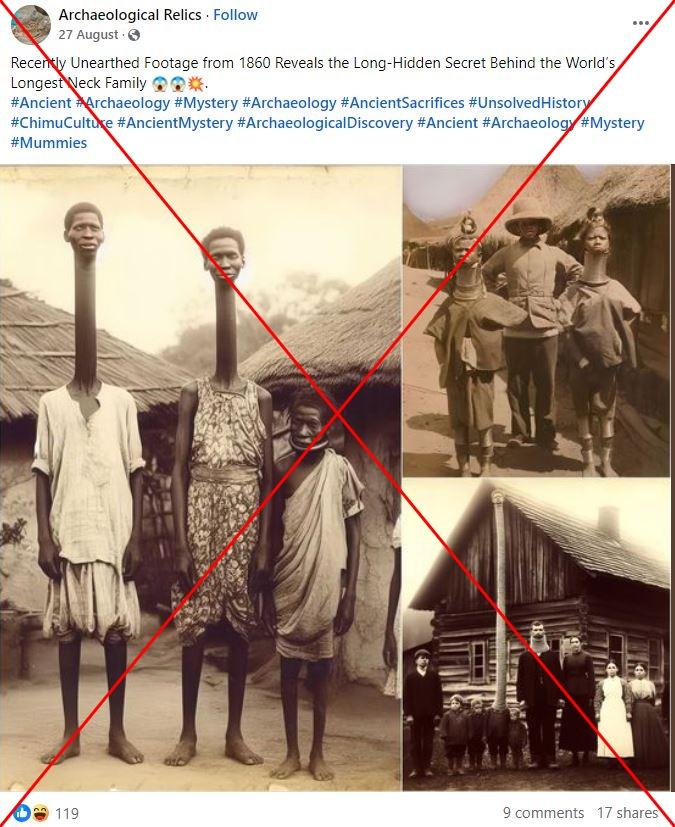
While some social media users called out the pictures as fake, many appeared to believe they showed a genuine long-necked family.
"There must be a lot in the world that I still have no clue about," one Facebook user commented.
"Glory be to Allah," another wrote.
AFP has repeatedly fact-checked AI-generated content, from dramatic footage falsely shared as Hurricane Milton wreaking havoc in the United States to a fake video appearing to show billionaire philanthropist Bill Gates supporting Pakistan's jailed ex-leader Imran Khan.
Only one of the images in the false posts is authentic, while the rest show signs they were generated by AI.
AI images
A reverse image search revealed the photo of women with rings around their necks was taken from the book "Scenes From Every Land".
The collection of photographs, edited by the head of the National Geographic Society Gilbert Grosvenor, was first published in 1907. A copy is available on the Internet Archive website (archived link).
According to the caption, it shows women in the Shan Hills mountainous area of Myanmar photographed by Alfred Smith.
The Padaung women, who live in the highlands of northwestern Thailand and southeastern Myanmar, have the longest recorded human necks, stretching to 19.7 centimetres (7.7 inches) in length thanks to coiled brass neck rings, according to a 2018 study referenced by the Guinness World Record's website (archived link).
Below is a screenshot comparison of the picture seen in the false post (left) and on the Internet Archive website (right):

Separate reverse image searches combined with keyword searches found other images in the false post in a TikTok video from November 23, 2023 (archived link).
The TikTok's caption read: "Historical leaked footage back in 1860 for the completion of longest neck family caught back then, Top 3 contenders."
The images were posted by an account called "FunnyAI", whose profile page says it creates "AI-generated strange and funny art" (archived link).
Below is a screenshot comparison of the pictures seen in the false post (left) and in the TikTok post (right):
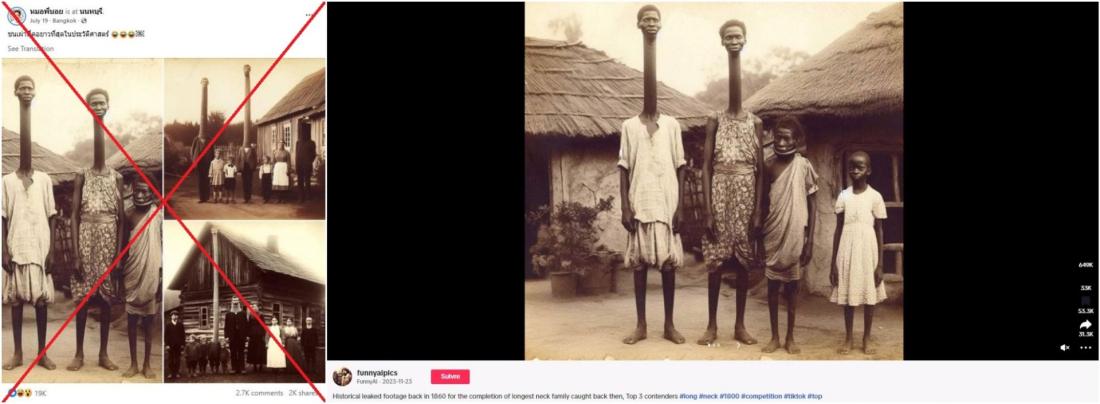
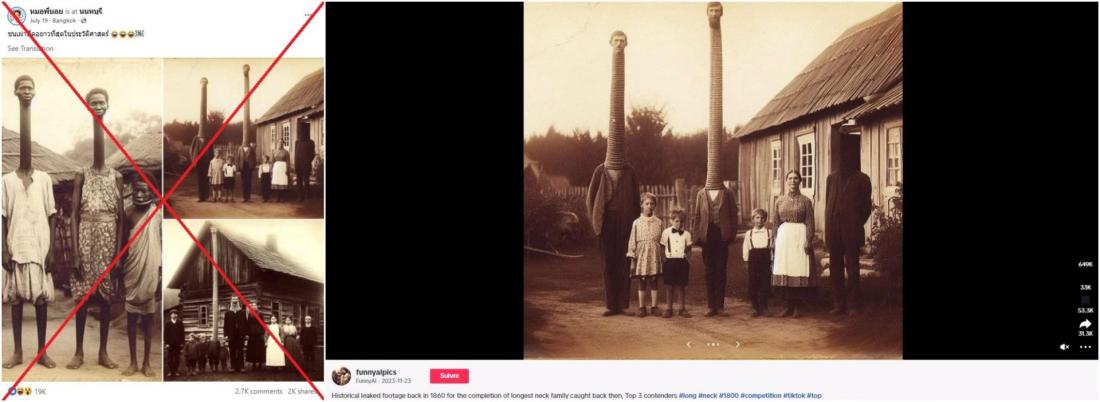
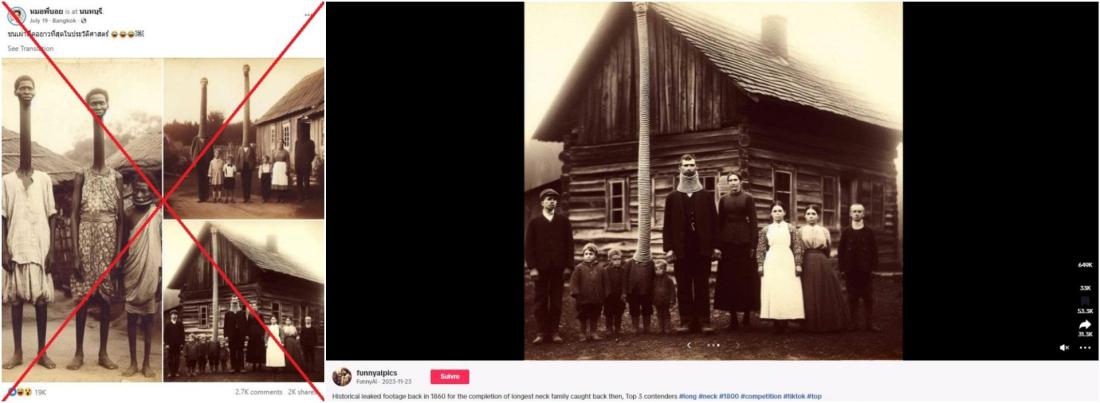
While AFP could not confirm the origin of the photo of a giant skeleton, an AI expert said it appeared to be a digital creation.
Shu Hu, head of Purdue University's Purdue Machine Learning and Media Forensics Lab in the United States, pointed to visual inconsistencies in the images, including distorted faces, the lack of pupils in a man's eye, misaligned walls of a log cabin, a missing head and excess fingers and neck bones (archived link).
Below are screenshots of original AI-generated images, with visual inconsistencies highlighted by AFP:
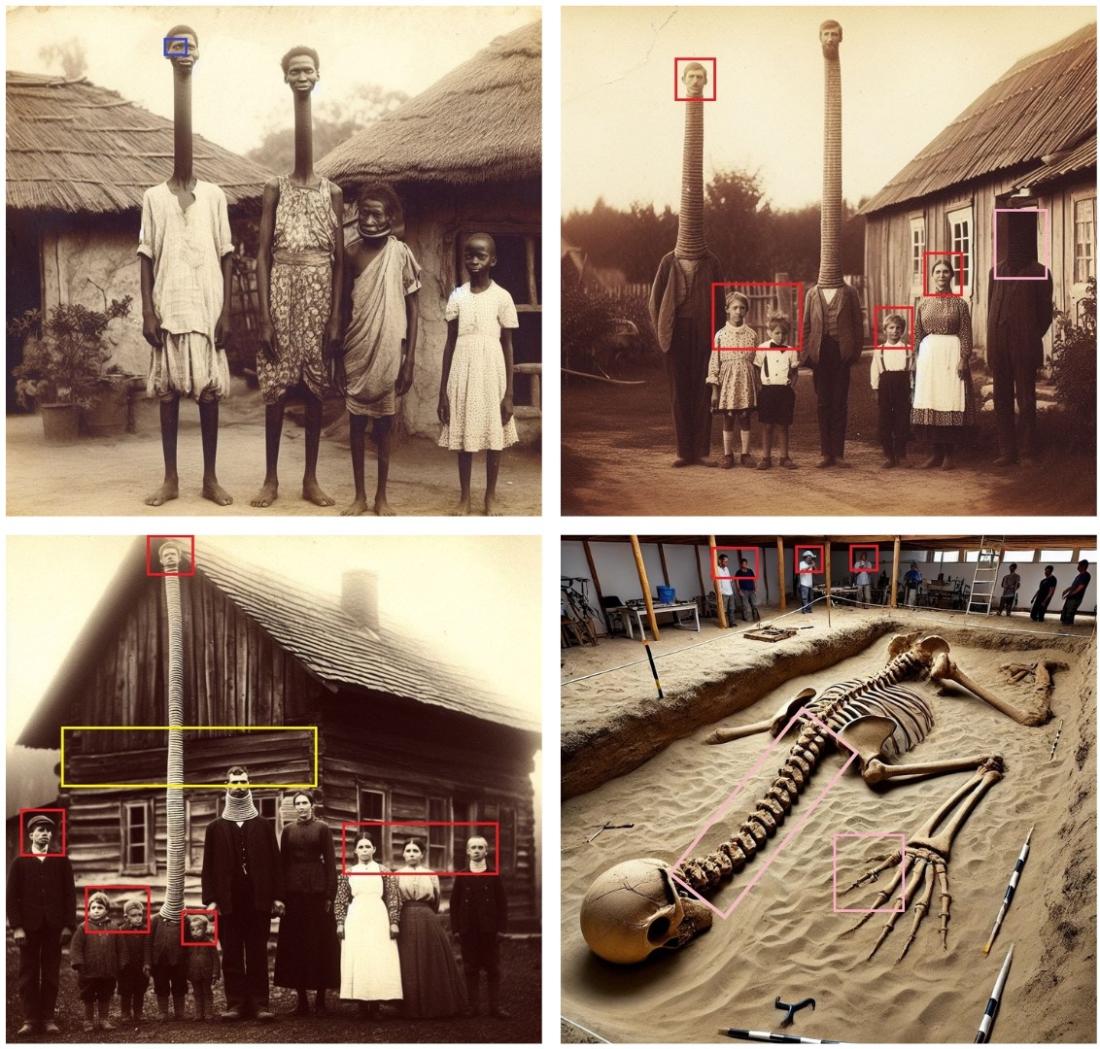
"These images can easily lead to the spread of false information," he told AFP.
The images were also flagged as being generated by AI by the European verification project vera.ai, in which AFP is a partner. This detector identifies specific traces left by AI image generation software.
Copyright © AFP 2017-2026. Any commercial use of this content requires a subscription. Click here to find out more.
Is there content that you would like AFP to fact-check? Get in touch.
Contact us




